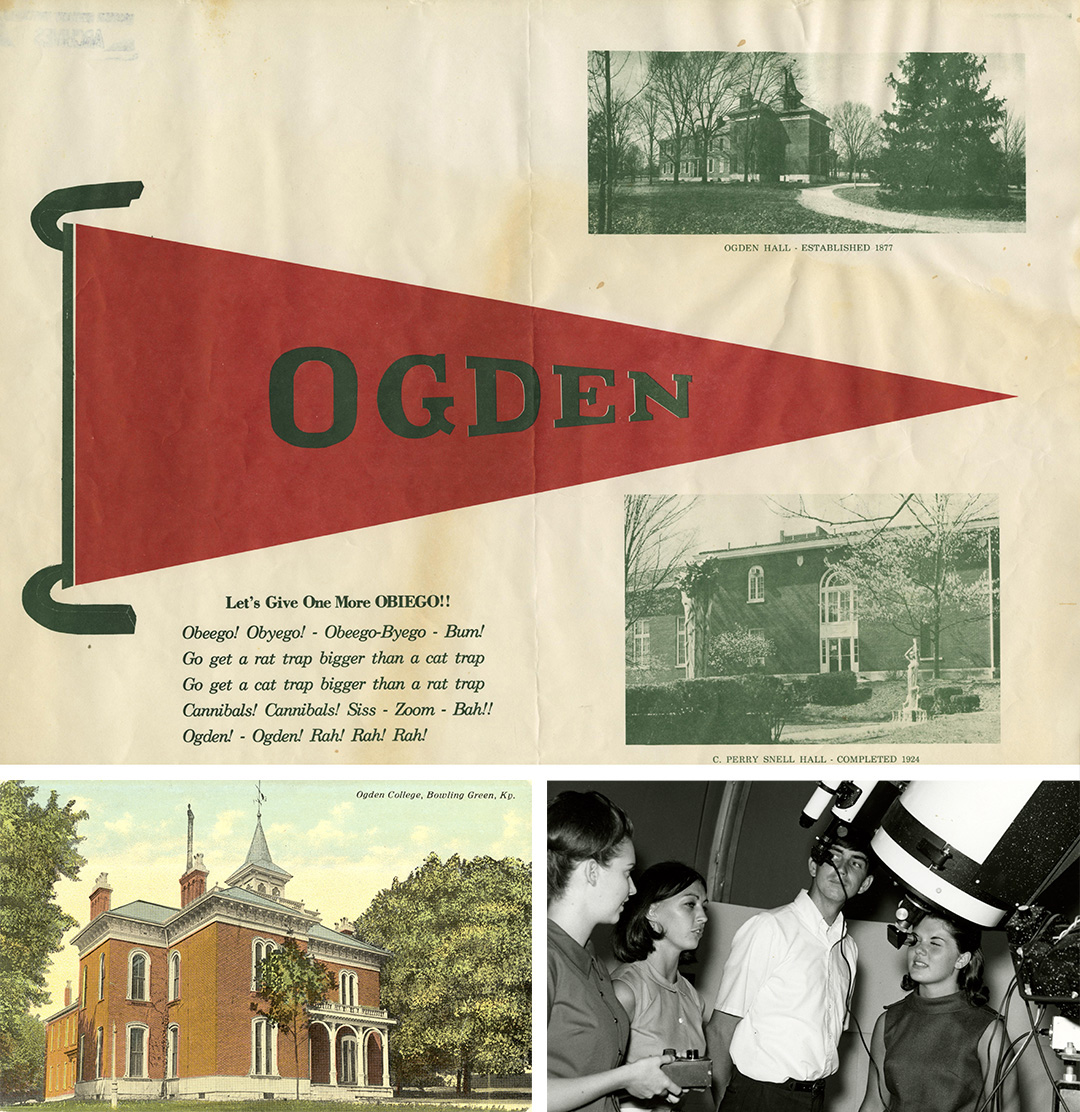Ogden College turns 50
September 3, 2015
This fall, WKU’s Ogden College of Science and Engineering will celebrate its 50th anniversary.
The original college was founded in 1877 when Maj. Robert Wenn Ogden left $50,000 in his will to establish a school in his name.
“It started as a very small school,” said Kenneth Crawford, the associate dean of Ogden College. “It never really grew, never really took off.”
The college began as an all-boys college preparatory school and consisted of 162 all-white students. Over the years, several small additions were made, and in 1926, Snell Hall was constructed.
The school lasted for 51 years until, on Nov. 19, 1927, the Board of Regents made an offer to take over Ogden College. It was decided that Ogden’s campus would be leased to the Western Kentucky State Normal School and Teachers’ College, which would later be called Western Kentucky University.
In 1928, Ogden College officially became part of Western Kentucky State and was no longer its own college.
Thirty-seven years later in 1965, the Board of Regents and then-President Kelly Thompson approved a plan to build three new separate colleges: Ogden College of Science and Technology, Potter College of Liberal Arts and the College of Education. The hope was that adding these three separate colleges would allow the college to grow so it could attain university status.
Two years later, on Oct. 13, 1967, construction on Hardin Planetarium was completed and the building dedicated. The planetarium was named after Hardin Cherry Thompson, the son of former President Kelly Thompson, who died during his senior year at WKU. Another building, the Environmental Sciences and Technology Building, was added between 1975 and 1976.
In 1981, WKU’s College of Applied Arts and Health was disbanded, and Ogden College became Ogden College of Science, Technology and Health. This name lasted until 2001, when the College of Health and Human Services was formed. Ogden College then returned to its current name.
Since its beginning in 1877, the college has experienced exponential growth.
Today, it has a total enrollment of 3,400 students, and it has come a long way from its days as a boys-only school. Now, males make up 64 percent of the student population and 71 percent of the faculty, and the percentage of women and minorities continues to grow. The college has also expanded to include new majors such as computer science, architectural science and engineering. The most recent addition is the department of psychological sciences.
“We now have 10 colleges, 10 departments. Engineering was added as a full-blown department in … 2002 or something like that. The other addition over those times was what we now call architectural and manufacturing sciences, and that department kind of rerouted the vocational training,” said Crawford, adding that it is now one of the fastest-growing programs with over 700 majors.
The growth in majors has led to an increase in faculty members with varying areas of expertise.
Lexington junior Brent Harney is a student ambassador for Ogden College. He described the Ogden faculty as “very accommodating.”
“They really want to supply students with all the opportunities they can,” Harney said.
This desire to supply students with new opportunities has led to the creation of new study abroad opportunities. Harlaxton College in Grantham, England, will now offer science classes so students from Ogden can study abroad without falling behind in their majors.
Another new addition to the college is a brewing and distilling program.
“We’re developing it as a certificate program, potentially to grow into a minor and maybe even grow into a major someday,” said Crawford.
The brewing and distilling program is a collaborative effort between Ogden College, Gordon Ford College of Business and Potter College.
To celebrate both the addition of new programs such as the brewing and distilling program and Ogden College’s growth over the past 50 years, a committee of volunteers has planned several events for this year.
Along the sidewalk near the science buildings are black banners on lamp posts with the words “WKU Ogden Science and Engineering Celebrating 50 Years.” Also planned are social media campaigns with the hashtag #ogden50years and a dedication plaque for the new building that will replace Thompson Complex North Wing.
Cheryl Stevens, the dean of Ogden College, said she hopes Ogden will continue growing. “I think that we want Ogden College to be the place to be for engaged, hands-on, project driven, applied kinds of experience for our students, and we think that we do an excellent job—better than anybody else in the state in providing that kind of personalized experience,” Stevens said. “We want to be on the map as the place to be.”



















![Students cheer for Senator at Large Jaden Marshall after being announced as the Intercultural Student Engagement Center Senator for the 24th Senate on Wednesday, April 17 in the Senate Chamber in DSU. Ive done everything in my power, Ive said it 100 times, to be for the students, Marshall said. So, not only to win, but to hear that reaction for me by the other students is just something that shows people actually care about me [and] really support me.](https://wkuherald.com/wp-content/uploads/2024/04/jadenmarshall-600x422.jpg)





